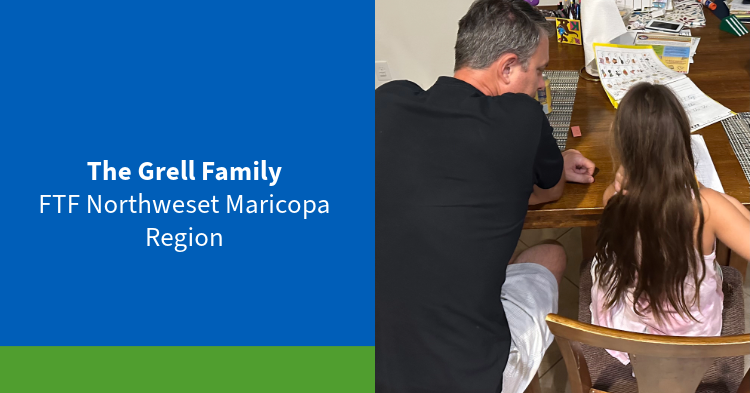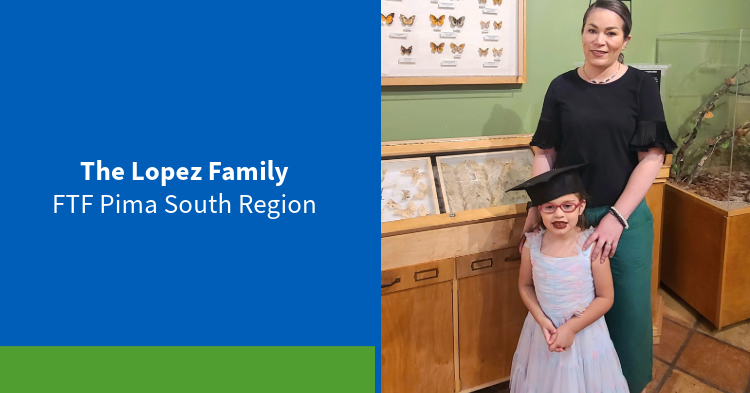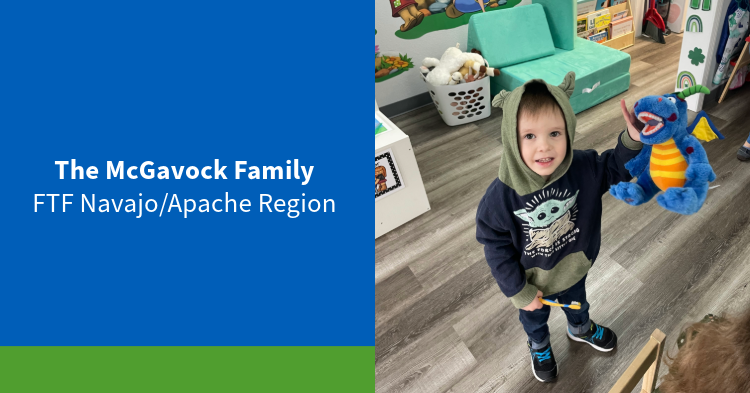
When Courtney Grell had her first daughter Delaney in 2017, she knew that something was different.
Delaney was always hyper, going non-stop. She would have tantrums about putting on her socks or brushing her teeth. The tantrums grew more intense and there was no discipline that worked.
Grell and her husband, who live in Surprise, tried a developmental pediatrician and then occupational therapy for Delaney, neither helped. At age 3, Delaney jumped off of a rock climbing wall, breaking both her arm and leg.
The behavior issues continued when Delaney started preschool. She wasn’t able to sit still.
“In the classroom with the other children, Delaney would start to grab or kick them so she ended up sitting at a table by herself, which just broke my heart,” Grell said. “Delaney did have remorse for the things she did but was unable to stop herself.”
Teachers told Grell that her daughter showed early signs of attention-deficit/hyperactivity disorder, also called ADHD.
When Delaney was 4, Courtney became pregnant with her second daughter. She was desperate for help when she started having thoughts about Delaney “being too rough or hurting her sister.” She started looking into resources for her daughter and an ad for Parents as Teachers popped up on Facebook.
The First Things First Northwest Maricopa Regional Council funds the home visitation program Parents as Teachers Early Intervention – for children with special needs. In the program, families can get individualized support and coaching through a home visitor who helps identify and address developmental concerns early, respond to challenging behaviors and support a child’s physical, social and emotional development.
Each week, home visitor Reina Bobadilla would meet with the family. Although Delaney was too young to be diagnosed with ADHD, Bobadilla determined she was struggling with sensory processing disorder, meaning Delaney’s body has a hard time regulating her environment. She liked to be aggressive. Also, she was fixated with putting things directly in her mouth.
One of the main things the home visitor worked on was the overall family dynamic. Delaney looked for a negative reaction from her mom when she acted out. Bobadilla worked with Grell to implement positive discipline. She told the parents that some negative behavior had to be ignored until Delaney calmed down. After, Grell or her husband would revisit the situation. Over the months, Delaney learned to improve her self-regulation, calm down and come back to her mom and apologize.
Helping Delaney regulate her behavior around the baby was important. She was given a warning if she pushed her sister, then put in time out. Grell learned to enforce discipline. The same action was taken when Delaney was pulling the dog’s tail or not wanting to get out of the pool. Grell ignored the tantrum behavior until Delaney calmed down and made a good choice with her actions.
For further support, Bobadilla also sought to improve family communication. One of the activities they would do was an active moving game where the family would throw a ball back and forth and each time they released the ball they would say, “I love it when you…” or “I don’t like it when you…”
Grell remembers fondly a time when Delaney said, “Mom, I love it when you play with me.”
As Delaney got more comfortable vocalizing her feelings she said, “I don’t like it when they talk about me like I am not in the room.” This helped her parents understand why she acted out at times. Grell and her husband changed the way they talked when she was in the room to make sure they were speaking to her and including her in the conversation.
Although Delaney aged out of the home visitation program, the tools from the program continue to be used daily. Grell is happy to report that now Delaney sits at the table and does her homework.
“Parents as Teachers not only provided tools for my daughter, but also tools for myself and my husband,” she said. “They helped multiple aspects of our lives.”




